See one, do one, teach one: Sara Lolar brings expertise and enthusiasm to WSU Applebaum's Physician Assistant Studies program
It came as no surprise to those who have followed Sara Lolar's commendable career over the years to learn she'd won a highly competitive research award this spring.
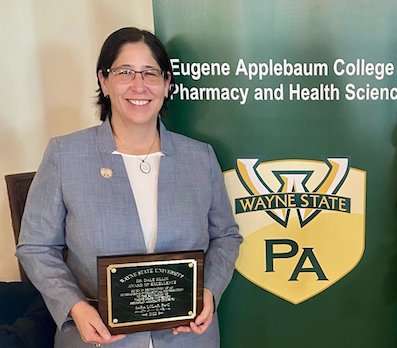
In June, the Wayne State University assistant clinical professor of Physician Assistant Studies earned $10,000 in funding from the Eugene Applebaum College of Pharmacy and Health Sciences. Lolar will use the grant to pursue her study, "Physician assistant scholarship: Gender differences and factors that promote female authorship" - and it's personal.
"Success in research and advancement in academic rank are well-known challenges in the PA profession," said Lolar, who has worked for DMC Detroit Receiving Hospital's Emergency Department since graduating from WSU Applebaum's Physician Assistant Studies program in 2005. "The majority of academic physician assistants have never published a peer-reviewed article and do not advance beyond the rank of assistant professor. Because there are proportionally more women in the professoriate, it is imperative to understand the role gender plays in scholarship and address bias if it exists."
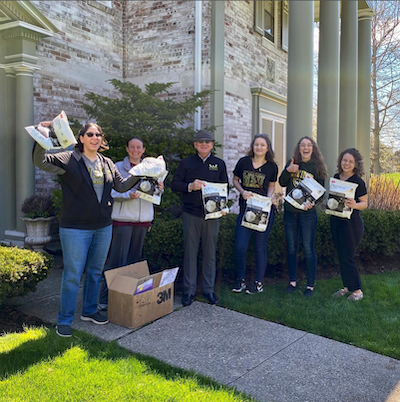
Lolar maintained a post-grad connection to the PAS program - and eventually became a full-fledged faculty member - in part to have more research opportunities. "The Detroit Receiving Emergency Department is well-known for producing researchers, and I was surrounded by attendings and residents who were living up to that reputation," she said. "I was interested, too, but was at first missing the ability to get data and connect with faculty members who could help."
Shortly after earning her PAS degree, Lolar began proctoring checklist exams for the college, and over time began doing more and more in the classroom. She reviewed patient cases and documentation, delivered lectures on her areas of expertise, helped teach procedures such as suturing and slit lamp exams, and precepted PAS students for emergency medicine rotations.
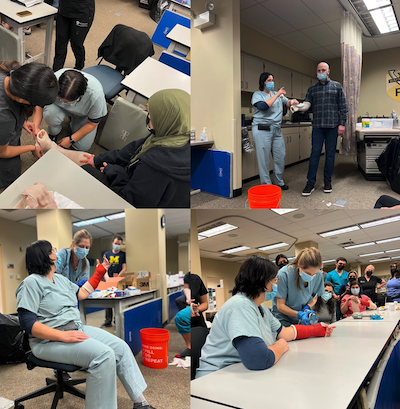
"I've always been very loyal to Wayne State, and Jamie McQueen has this amazing ability to get you to do stuff that makes you uncomfortable," Lolar said, referring to the 2009 PAS program graduate and current assistant clinical professor. "She sprinkled unicorn dust and brought me into the fold. I helped sculpt a class and strengthen the curriculum, and realized it was fun and that I really enjoyed being in the classroom."
Even though Lolar was more involved than the typical alum, it was a big change to go from working full-time at the hospital to splitting her week between the classroom and clinic when she officially joined the faculty five years ago.
"I am super busy all of the time - that's the only downside," she said. "But after working at the hospital for 16 years, I was starting to get burned out, which is common in the ED. Being able to add a component that uses different skillsets has made me a better clinician. And students are fascinated by things I've seen a million times, so that gets me excited about it again."
Indeed, students seem to universally admire Lolar, as evidenced by the six times they've presented her with the Dale Sillix Teaching Award of Excellence, most recently this past May.
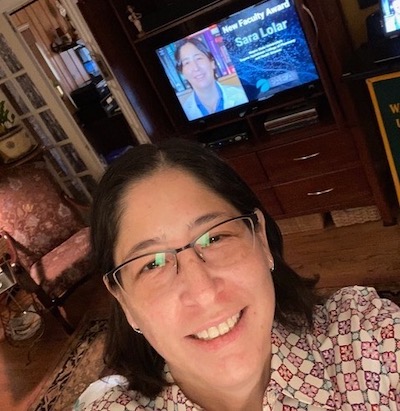
"Sara is always approachable and willing to take the extra time to ensure her students really understand the concepts of medicine that she brings to life," members of the Class of 2022 wrote in the ceremony program. "Sara brings the 'clinical to the classroom' by leading students through real-life patient cases taken from her clinical practice. It's her unique ability to bridge the classroom with the real-life, real-time practice of medicine that has made her an outstanding candidate for this award."
Crucial collaboration
Experiencing the benefits that come from thoughtful interaction with students and fellow professors has made Lolar realize that mentorship is key - so much so that she is looking into this on a deeper level through her WSU Applebaum Faculty Research Award Program (FRAP) project, which aims to determine whether a mentor's gender matters when it comes to female authorship.
Finding a research mentor and maintaining that bond does not come naturally in the PA profession, Lolar said, adding that her first was Dr. Robert Welch, who provided guidance as they worked shoulder-to-shoulder during her early years at Detroit Receiving. Within the college, she is grateful for direction provided by Interim Associate Dean for Health Sciences Sara Maher on a number of projects, and has paid it forward with research-focused students through the years - including Naser Alijabbari, who is working as a student assistant on Lolar's FRAP project.
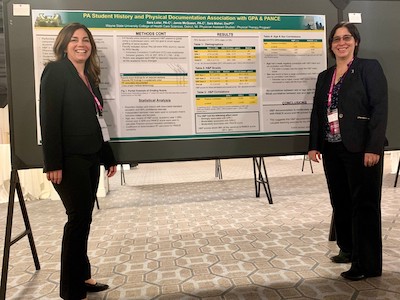
"We only have students for two years and they have so much learning and training to do in that time," Lolar said. "They head off to clinicals after the first year so we don't see them as much, but those who have approached me with ideas tend to have grit. A lot of research comes down to grit."
She noted that most people enter PA school because they want to take care of patients. "That's your primary interest, and secondary is service - health fairs, volunteer medical clinics and things that are an extension of patient care," Lolar said. "Research tends to fall much lower on the priority list. So you can be an excellent PA faculty member doing excellent service work, but it's going to be harder to get promoted because of your lack of research productivity."
Meanwhile, more than 70% of PA professoriate is female, and there's a clear gender gap among those who publish. "Why is it that men are much more likely to publish?" Lolar wondered. "Women report more time constraints related to home and parental responsibilities, and perceive those constraints differently than men. Men also have a clearer vision of where they see themselves in five years and feel more supported than their female colleagues - is that true or is it a perception?"
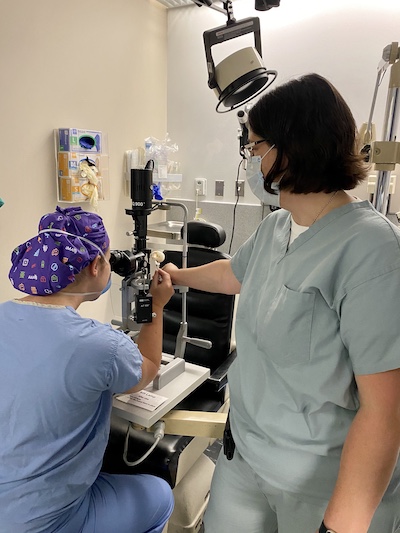
Lolar said she doesn't define herself by her gender - or race or sexuality for that matter - even though others might, adding, "I always figure these parts are what make me, well, me. I don't generally identify simply as Native American or gay or as a woman even though I am all those things. I'm just Sara."
She added, "I don't want to suggest that there is no bias against me as a gay, Native woman. When I do experience bias, I don't let that hold me back. I figure out a way to work around it."
In a Q&A published last year by the Physician Assistant Education Association, Lolar said, "I'm one of two Native American PA educators identified in the recent PAEA faculty survey, and the PA profession is made up of only 0.4% American Indian and Alaska Natives. There is a constant struggle - especially in urban Natives - to feel like you belong and like you deserve to be represented.
"My family has doctors, pharmacists, teachers and judges. I even have two Indian chiefs in my family! That has been the difference for me in my life and career. It has given me the ability to move beyond obstacles and barriers. I not only had role models, I also always had a community of my elders and my tribe making it clear that they would support me and my goals."
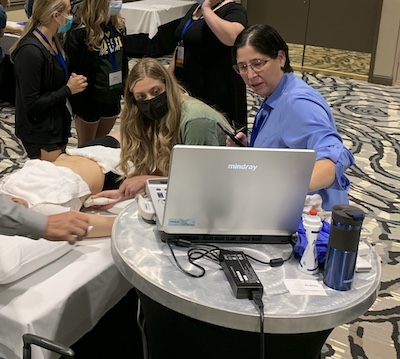
Clear vision
Prior to embarking upon the FRAP authorship study, Lolar was awarded the 2019 Don Pedersen Research Grant by the PAEA to fund a related project, "Barriers to research: A national survey of physician assistant faculty." Then, earlier this year, the Journal of Physician Assistant Education - the industry's seminal journal - published her paper, "Student Ultrasound Interest Group: A novel method of introducing ultrasound to physician assistant students."
Knowing that a major barrier to teaching ultrasound in PA school is time - the two-year curriculum is already packed with critical lessons - Lolar proposed introducing small groups of students to ultrasound techniques away from the classroom on a volunteer basis.
"The students knew it was important and were clamoring to get hands-on experience so they'd at least be familiar with the buttons before heading out on rotation," Lolar said. "It's not required through the curriculum and we aren't doing any assessments. We hold one session a month for 10 students at a time, and it's been super popular."
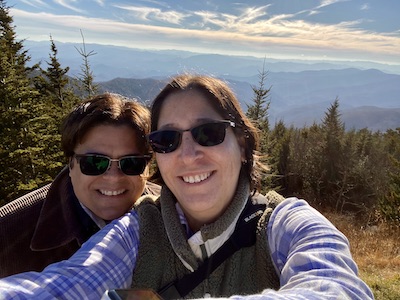
Lolar has the stats to back that up. Looking at 37 students participating in the voluntary Student Ultrasound Interest Group through her research, Lolar found that the average score on a knowledge test increased from 37% to 90% after the scanning sessions, and 94% of students reported increased motivation to seek out ultrasound opportunities on clinical rotations.
"I was so excited to see Sara's ultrasound paper published, and am so impressed that she has followed through with this work and disseminated her impactful findings to other physician assistant educators," Maher said. "Student access to ultrasound equipment helps to put our PAS program on the cutting edge."
Powerful example
Lolar's FRAP and Sillix awards were the latest in a long line of accolades she has earned in a relatively short period. In addition to the previously mentioned Pedersen grant, the PAEA also presented Lolar with its New Faculty Award for Professional Excellence in 2020.
Bestowed upon one faculty member in the nation with three or fewer years of service, the award honors outstanding contributions in either teaching, scholarship, administration or professional service. Lolar excels in all four areas, according to colleague McQueen, who said, "Never in my years as faculty have I witnessed such growth in a PA educator. Our program has seen monumental improvement in the short time Sara has been on our team."

After earning a Wayne State bachelor's degree in biological sciences in 1995, Lolar's path forward came into focus when she began work as a paramedic. She felt an immediate connection to health care, and knew where she'd fit best after seeing physician assistants in action.
"I have such fond memories of PA school," Lolar said. "When my students tell me they feel stressed or overworked, I let them know that this is the one time in their lives when they can dedicate themselves to this one thing, medicine, with a close group of classmates. It's a unique experience and I want them to love it as much as I did."
Although she's now at the front of the classroom, Lolar's passion for learning remains. "In medicine, we're constantly learning and teaching, teaching and learning," she said. "There's that model: See one, do one, teach one. First you observe a procedure, then you perform it on your own, then you train someone else on it. That's my whole life."
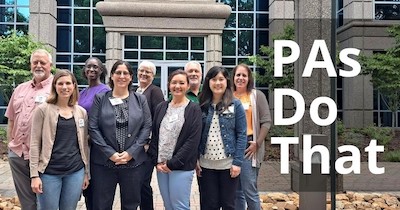
Without doubt, PAS Program Director Mary Jo Pilat feels fortunate to have Lolar on her team. "Sara is the embodiment of See one, do one, teach one," Pilat said. "Her work caring for the community's underserved at Detroit Receiving sets a powerful example for our students. Not only is she giving her all in educating the next generation of physician assistants, she is investigating important issues that will directly affect their careers. She is one of a kind, and I can't wait to see what she does next."
The Physician Assistant Studies master of science degree program at the Wayne State University Eugene Applebaum College of Pharmacy and Health Sciences is focused on the development of highly competent and passionate physician assistants who are deeply committed to practicing in urban and underserved health care settings. The admission cycle runs from May 1-Sept. 1 for classes beginning the following May. Prospective students can get started by attending a WSU Applebaum information meeting the first Tuesday of each month at 6 p.m.
An anchor in urban health care
The Eugene Applebaum College of Pharmacy and Health Sciences is built on more than 100 years of tradition and innovation in the heart of Detroit. We have grown deep roots in our city, harnessing its powerhouse hospital systems and community service organizations as vibrant, real-world training grounds for students, with an ongoing focus on social justice in health care. And our research at all levels - from undergraduates to veteran faculty members - translates into creative solutions for healthier communities.
Wayne State University is a premier urban research institution offering approximately 350 academic programs through 13 schools and colleges to more than 25,000 students.